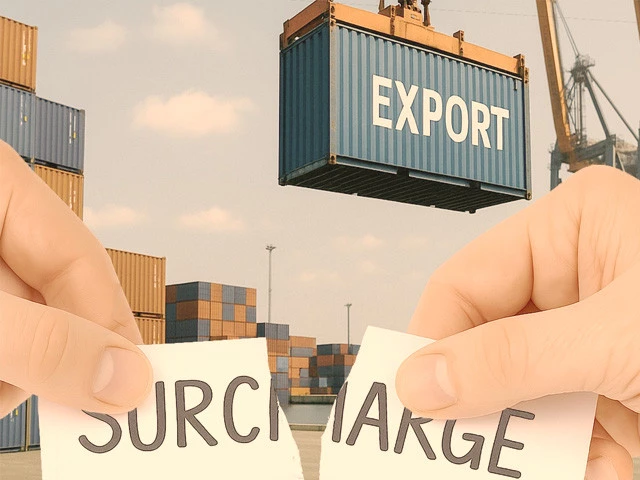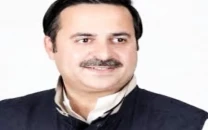Export development surcharge scrapped by Shehbaz Sharif in a bid to boost business
Decision taken to slash business cost for exporters, address misuse complaints

Prime Minister Shehbaz Sharif on Monday ordered to immediate abolish the export development surcharge (EDS), taking a small but important step to lower the cost of doing business for exporters and responding to complaints about misuse of funds.
The premier instructed to establish a committee to oversee the utilisation of the pending balance of Rs52 billion in the Export Development Fund (EDF), which is funded through a 0.25% surcharge.
The decision has been taken following recommendation from the prime minister's private sector-led working group on the Export Development Fund. Musadaq Zulqarnain, a leading textile exporter, chaired the working group.
It was decided that the 0.25% EDS on exports would be withdrawn immediately, providing essential relief to exporters and supporting competitiveness in global markets.
The prime minister ordered a third-party audit of EDF in line with international standards and directed the immediate abolition of the export surcharge, according to an announcement made by the PM Office.
The meeting also discussed the option of promulgating a presidential order to immediately withdraw the surcharge. Earlier, the prime minister ended an unjustified television fee of Rs35 in every electricity bill as part of efforts to reduce the cost of doing business. Pakistan is struggling to enhance exports and one of the causes is the high cost of doing business.
During the meeting, members of the working group raised concerns about high taxes and the cost of energy. The prime minister said that other working groups were finalising recommendations on these aspects.
He added that a suitable chairman should be appointed to ensure the best possible utilisation of EDF. It is the first recommendation that the PM has so far accepted from any of the eight working groups.
The Export Development Fund panel was the second in the series that submitted recommendations to the prime minister in the past few days after the working group on industrialisation. Minister of State for Finance Bilal Azhar Kayani is assisting the premier and the private sector-led groups in coming up with recommendations that can revive the economy on a sustainable basis.
The working group on industrialisation has proposed letting Pakistani rupee gain its real value by linking it with average inflation in trading partner countries and lowering interest rate close to the domestic inflation reading. However, the prime minister has not yet given his decision on both of these major recommendations.
He gave the directive that an interim steering committee, led by private-sector representatives, should be formed to supervise the utilisation of the remaining Rs52 billion available in EDF. The PM was informed that another about Rs8 billion was being collected in the current fiscal year and its utilisation should also be the mandate of the committee.
The PM stressed that EDF resources must only be utilised for research and development, skill development and competitiveness-related interventions, with no allocation for infrastructure projects.
The EDF money has been utilised to finance international trade fairs, participation in trade exhibitions and organisation of in-country expos. The main beneficiaries of the fund have been the Trade Development Authority of Pakistan (TDAP) and leading business and commerce chambers whose infrastructure projects were funded from proceeds of the fund.
In the last fiscal year, TDAP received a little less than Rs4 billion out of EDF for participating in international trade exhibitions and holding local flagship trade fairs.
"EDF must only be used for enhancing the country's exports, relevant research and development, skill development of export-sector workforce, training and provision of modern facilities of international standards," the prime minister emphasised.
He also directed that all schemes and programmes being run under EDF should undergo third-party audits.
While discussing a disproportionately high tax burden on export-oriented businesses, it was acknowledged that exporters face significantly higher taxes compared to the domestic industry. The prime minister had constituted a working group, led by Shahzad Saleem, which has completed its review.
The PM said the federal government was responsible for promoting and showcasing Pakistani products across global markets, adding that providing maximum facilities to exporters was among the government's top priorities.






















COMMENTS
Comments are moderated and generally will be posted if they are on-topic and not abusive.
For more information, please see our Comments FAQ